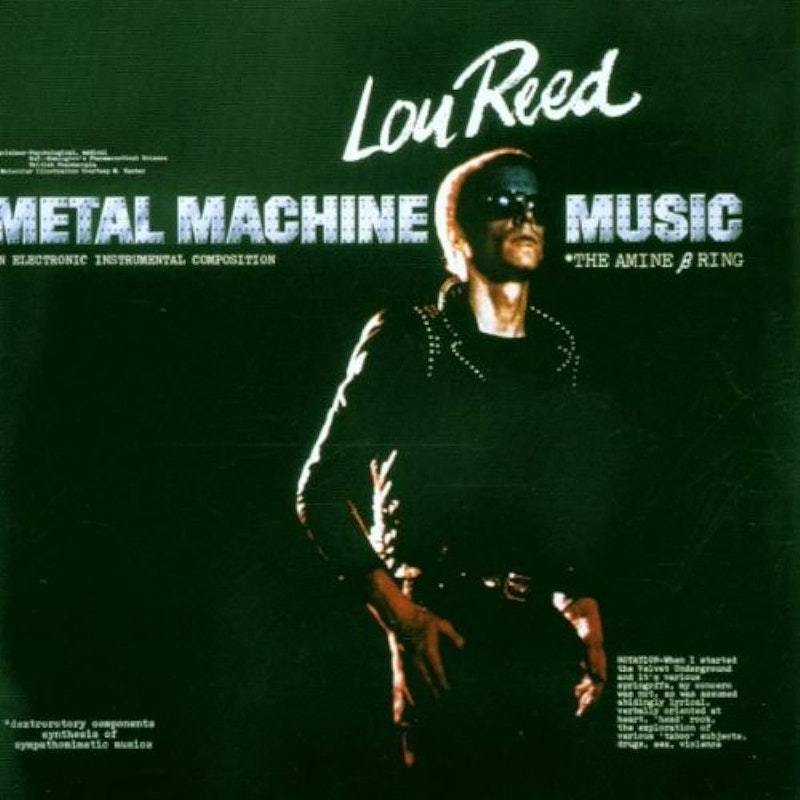During my college, pre-Ticketmaster years, four of us made the three-hour drive down to New York City just to purchase tickets for a Lou Reed show taking place at Madison Square Garden's Felt Forum in a couple of weeks. My buddy, Rick Porter, our man behind the wheel, designated the trip as "the boldest ticket run ever," an impressive turn of phrase that hung around in our conversations. Rick's old car broke down in the Bronx on the way back, but we returned with the ducats, and then made our way back to Manhattan to take in the concert. There was no need for all of us to make the ticket drive (only Rick drove), but nobody wanted to miss a joint-fueled road trip to the city.
My colleague Crispin Sartwell recently added another installment to his provocative "Why They Suck" series for Splice Today, with Lou Reed the latest object of his scorn, adding the Godfather of Punk to his artistic shit list that includes such luminaries as Bob Dylan, The Beatles, Pablo Picasso, and David Bowie. The tenor of Crispin's piece indicated personal disdain for the artist, in addition to a distaste for the man's music. And Reed gave him plenty of material to work with on the personal side. The author related a disgusting story involving the musician that I've heard several variations of over the years, and there's plenty of other information indicating how unpleasant (and worse) Reed could be. Anyone who takes his anger about the world out on a waitress is a mean little bully. Reed was a man full of contempt, and he had a tendency to vent his rage on the innocent, at least in his earlier years.
Artist's lives are often messy, but I've always tried to separate their work from the personal. French novelist Louis-Ferdinand Céline, a blatant anti-Semite, wrote one of the best books I've ever read—Journey to the End of the Night—in 1932. Putting aside the fact the Reed, at one time, was a misogynistic, violent prick, I've found his music, over the years, to not "suck," with the exception of such garbage as his 1975 proto-Noise Rock album, Metal Machine Music, which he released to spite his record label when his contempt got the better of him once again.
Crispin claims that Reed's music is monotonous and unmelodic. That was sometimes true in a career that spanned five decades, but starting with his first major band, The Velvet Underground, Reed was offering his vision of street realism, a hardcore environment that doesn't easily lend itself to melody. Take his VU song, "I'm Waiting For My Man," a gritty, observational chronicle of purchasing heroin on the streets in Harlem. It's monotonous and unmelodic—three rhythmic, strummed chords behind Reed talk/singing in his signature monotone—but it sure does capture the anxiety of a white boy scoring on 125th St. with lines like, "He's never early, he's always late/First thing you learn is you always gotta wait." There's no melody that would work with such lyrics, and no singing style would work either, so Reed employs the spoken word, as he did in many of his songs.
Crispin writes that Reed's "music was toxic as fentanyl," but I haven't died from it yet, despite decades of consumption. Does this condemnation really include an infectiously catchy hit song with ahead-of-his-time lyrics (it was about a transsexual), "Walk on the Wild Side," or his masterpiece song, "Coney Island Baby," a languorous, nostalgic paean to love: "The glory of love, just might come through." No musician who sucks could’ve given us these two songs, and there are plenty more.
A major oversight in his hit-piece is its focus on the musician's brief time with the Velvet Underground, which neither of the above songs fit into. In fact, the singer/songwriter's career after the Velvets, which lasted only five years (1965-1970), isn't even mentioned. There's a total of 20 solo albums for which Reed didn’t adhere to the Velvet Underground's familiar "droning and monotonous" formula. That's a lot of musical terrain to cover in this format, but listen to the 1973 album Berlin, a song cycle about a sadomasochistic drug-addled love affair in that German city, and tell me there's no melody there, especially in the title song, which also features some fine, jazzy piano playing plus some sweet, soft vocals from Reed: "We were in a small cafe/You could hear the guitars play/It was very nice/It was paradise."
There's a sneaky romantic vulnerability in these lyrics (as well as in "Coney Island Baby") that stands in contrast to his more well-known fascination with decadence and caustic persona. And the underrated album's druggy "How Do You Think It Feels" is a straight-up rocker that gets under your skin with the help of a scathing guitar solo by Steve Hunter. Reed's solo career, unlike the Velvet Underground, featured virtuoso guitarists such as Hunter and Robert Quine.
In Reed's other solo albums, there's plenty of melody and non-monotony, especially in two of his best songs: "Satellite of Love" and "Perfect Day." The latter song is about as far away from fentanyl as a songwriter can get with its story of the simple pleasures of life when shared with a lover. There's a walk in the park, a trip to the zoo, and a movie before heading home. But it wouldn't be a Reed song without a little vinegar, and he provides it with this jarring lyric: "You made me forget myself/I thought I was someone else, someone good."

